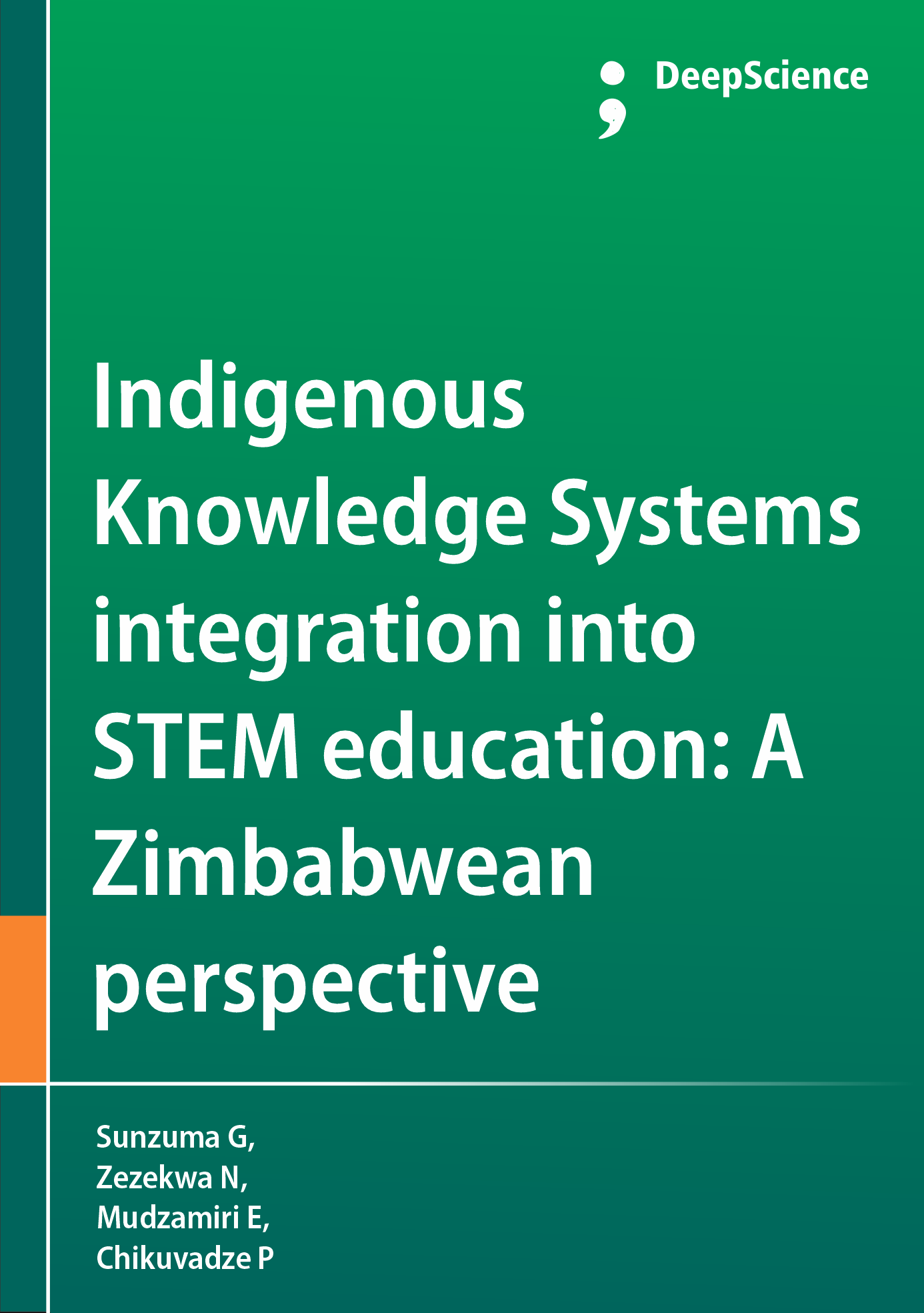Indigenous Knowledge Systems integration into STEM education: A Zimbabwean perspective
Keywords:
Indigenous Knowledge Systems (IKS), STEM Education, Culturally Responsive Pedagogy, Educational Decolonization, Curriculum Integration, Zimbabwean Education, Epistemological PluralismSynopsis
The inclusion of Indigenous Knowledge Systems (IKS) in STEM education is a crucial step towards decolonizing knowledge and creating inclusive, relevant learning spaces that reflect culture. This book examines the theoretical, practical, and contextual aspects of incorporating IKS into Zimbabwe's STEM curriculum, with a focus on high school education.
The book is a reflection of the realization that education systems in postcolonial societies like Zimbabwe must do more than simply propagate traditional Western paradigms. The lived experiences, past events, and educational institutions of their society must be reflected on and informed by them. The rich Indigenous knowledge in Zimbabwe has played a significant role in shaping communities' understanding of agriculture, health, engineering, mathematics, and the environment over time. Still, much of this knowledge has been marginalized in formal education. By providing a framework for the meaningful integration of IKS into STEM disciplines, this work seeks to close that gap.
Indigenous Knowledge Systems are introduced in Chapter 1, detailing their origin, development, and philosophical basis. Chapter 2: An Examination of the current integration of IKS into STEM education in Zimbabwe, taking into account curricular approaches and classroom practice. Chapter 3 highlights the importance of evaluating and assessing integration efforts by proposing culturally sensitive and multidimensional approaches that are appropriate for Zimbabwean classrooms.
In Chapter 4, we explore the challenges and obstacles to achieving successful IKS-STEM integration, such as teacher readiness, epistemological tensions, and systemic resistance. Chapter 5 offers an exceptional examination of how Indigenous knowledge artefacts and practices can be utilized for conceptual development in high school STEM instruction, with practical examples from Zimbabwean communities being included in the analysis.
It is aimed at teachers, researchers and practitioners of decolonial education practices, as well as policymakers and teacher trainers, to develop locally relevant and globally relevant pedagogies. We aspire that this work will contribute to advancing scholarship that recognizes Indigenous knowledge as essential, living science and promotes African learners as both recipients and producers of valuable knowledge.













